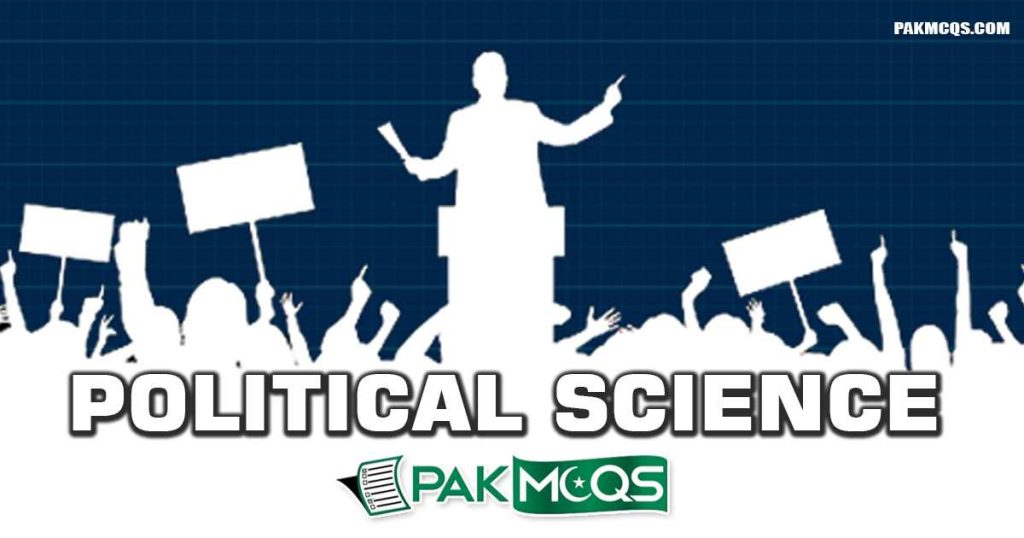A. It emphasizes only the negative functions of states
B. It over-emphasizes the role of the law in the governance of the state
C. It subordinates the laws, which represent cumulated wisdom of several generations, to te will of the people
D. Of all the above factors
Political Science Mcqs
Political Science Mcqs for Preparation of css pms & Fpsc, Nts, Kppsc, Ppsc, and other test. Political Science mcqs with answers for Lecturer, Assistant Professor, Subject Specialist, GAT Subject etc
A. Aristotle, Plato, Hobbes and Bentham
B. Bodin, Hobbes, Bentham and Laski
C. Bodin, Austin, Hobbes, Bentham
D. Aristotle, Austin, Laki and Hobbes
A. The state is an association of families and their common possessions, governed by a supreme power and by reason.
B. The state is a union of families and villages having for its end a perfect and self-sufficing life.
C. The state is a particular portion of mankind viewed as an organized unit
D. The state is a politically organised community with a definite territory.
A. Social association
B. Economic association
C. Political association
D. Socio-economic-cum-political association
A. The state is the result of a social contract
B. The state is a divine creation
C. The state is the result of force
D. The state is a living organism, rather a living spiritual being
A. James II of England
B. Napoleon I of France
C. Louis XIV of France
D. Hitler of Germany
A. MaclIver
B. Anderson and Parker
C. Durkheim
D. Max Weber
A. Aristotle
B. Plato
C. Cicero
D. Machiavelli
A. Irreligious
B. Anti-religious
C. Pro-religious
D. Has no religious of its own
A. Idealists
B. Individualists
C. Socialists
D. Anarchists


